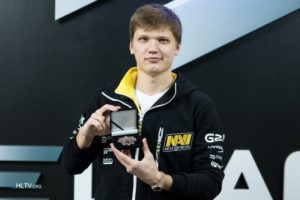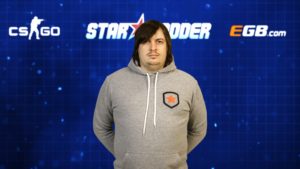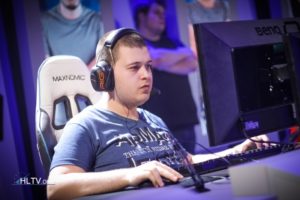A rule change now allows banned players to participate in Counter-Strike: Global Offensive tournaments once more. From 23rd March, CS:GO players that had received VAC bans over two years ago, can once again participate in featured ESL and ESEA tournaments. This does not include players involved in match-fixing; for example the iBUYPOWER team who threw their match for $10,000 (£8,017) in 2014 are still banned for life.
According to a 2016 report by the Esports Integrity Coalition (ESIC), cheating to win remains a key risk for esports events, followed closely by Denial-of-Service (DDos) attacks and match-fixing. The ESIC recommendation is to create a uniformity of sanctions between game publishers and tournament promoters so that participants fully understand the risk and repercussions.
Let’s take a look at the top three recent high profile CS:GO bans.

Alexander ‘s1mple’ Kostylev
Alexander ‘s1mple’ Kostylev received a ESL ban for using cheats in 2013. Moreover, he participated in qualifications for EMS One Katowice 2014 during the ban period. The organisers found out about it and disqualified the team, adding two years to s1mple’s ban.
During this period, however, he continued to play for teams including HellRaisers and FlipSid3 Tactics in various tournaments. When the ban expired, he joined Team Liquid and offically returned to the professional scene.

Mikhail ‘Dosia’ Stolyarov
During The World Championships 2016, in a match between France and Kazakhstan, Evgeniy ‘zLex’ Kim was substituted by Mikhail ‘Dosia’ Stolyarov. The Kazakhstan side won the game 3:2, but due to the rule breaking had to forfeit their place to France in the LAN finals.
As a result, the Kazakhstan team were excluded from the tournament for one year and the players involved were banned from E-frag events for two years. Moreover, Gambit Esports themselves fined the players for one third of their monthly salary, which was then donated to charity.
This is what Gambit Esports had to say: “Gambit Esports could not leave the incident unattended as it involved three members of Gambit CS:GO. First of all, we would like to apologize to the organisers of the tournament, the French national team and the fans of the Kazakhstan national team. Such actions violate competitive integrity and cannot be performed by professional players.”
Simeon ‘dream3r’ Ganev

Former BPro Gaming member Simeon ‘dream3r’ Ganev received a ban for using cheats in October 2014, when he played for Gplay.bg. He did not admit his guilt and said that the account was stolen and that he had acquired a new one. However, he was unable to prove this adequately enough for Valve.
The player commented on the situation at the time: “I cannot join my old account, I did not have the CD key or the credit card which was used to purchase the game so I could not retrieve it. So, on September 19, I bought a new one. My team and I would like to apologise to our organisation, to our sponsors and to our fans and followers who are cheering for us in such an embarrassing and awkward situation, even though this is not our fault.”
The team supported Ganev and continued playing in smaller tournaments with the same roster. However, during the European Minor Championship 2016 — Columbus, Ganev was substituted for Nikolay ‘pNshr’ Paunin.
Esports Insider says: During the past year, there have not been as many match-fixing scandals as in the past, which is a good sign for esports as a whole. The hope is that tournament organisers will continue to uphold fair and clear policies in regards to cheating.

